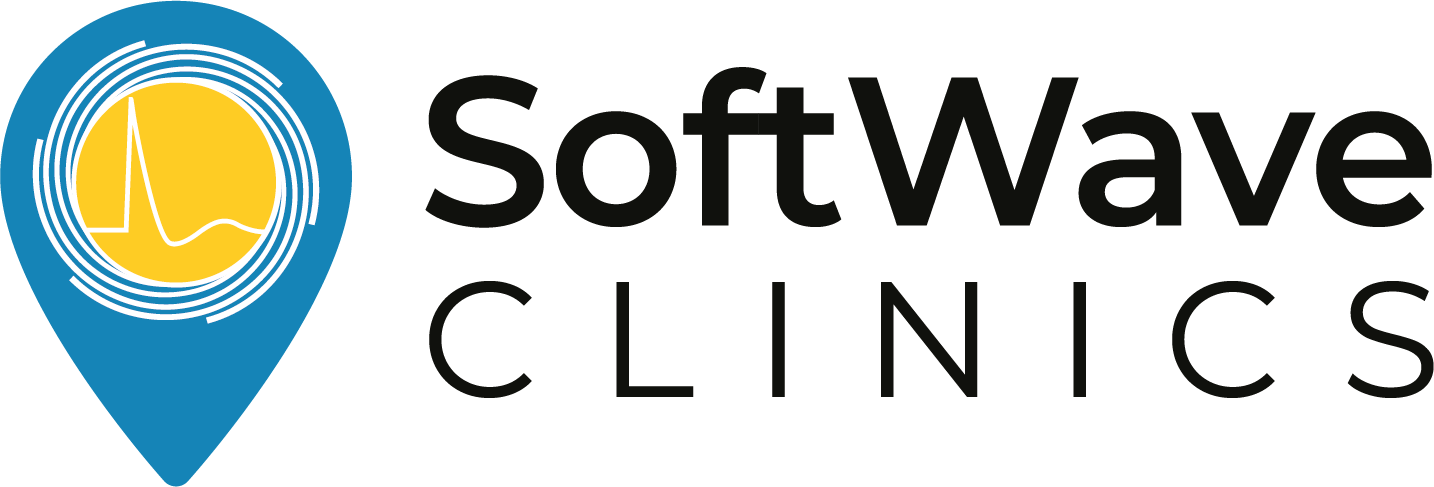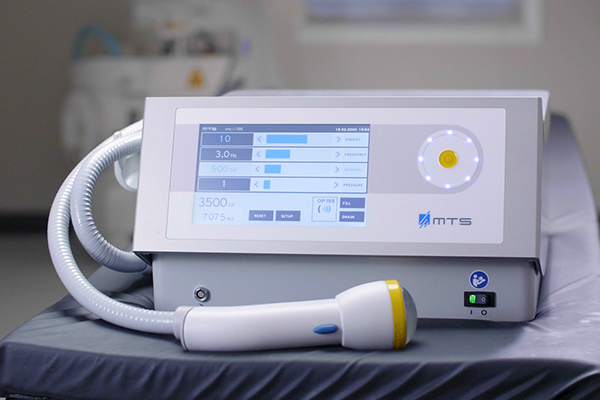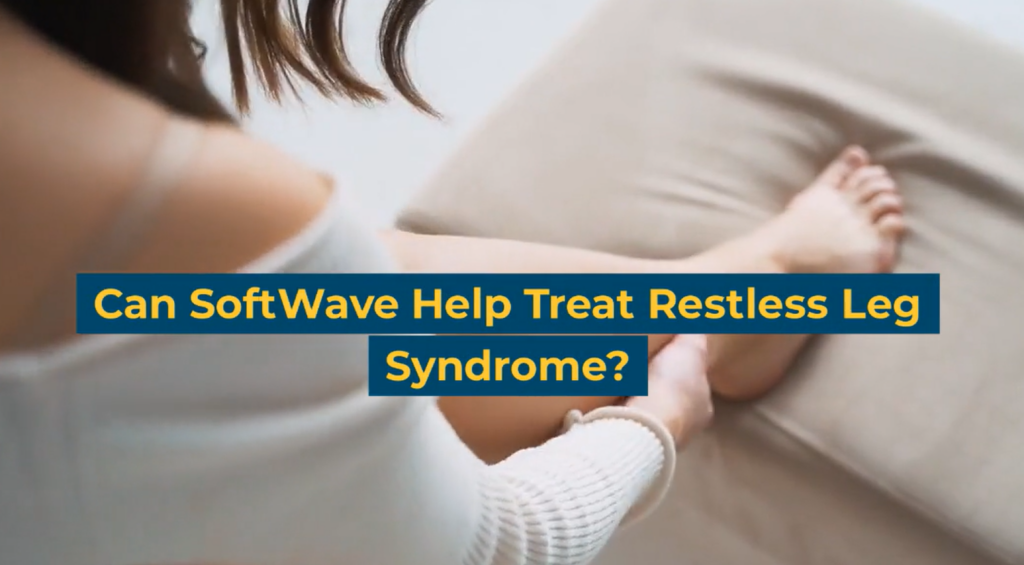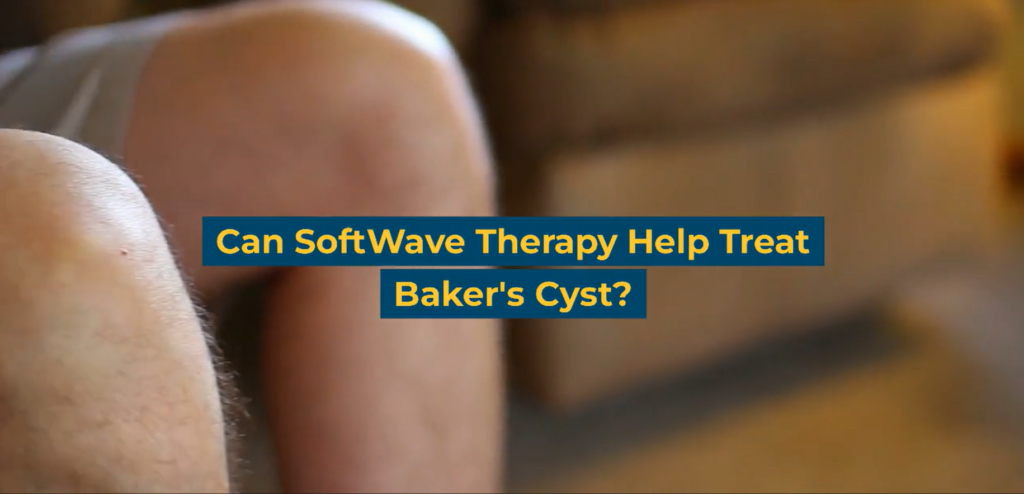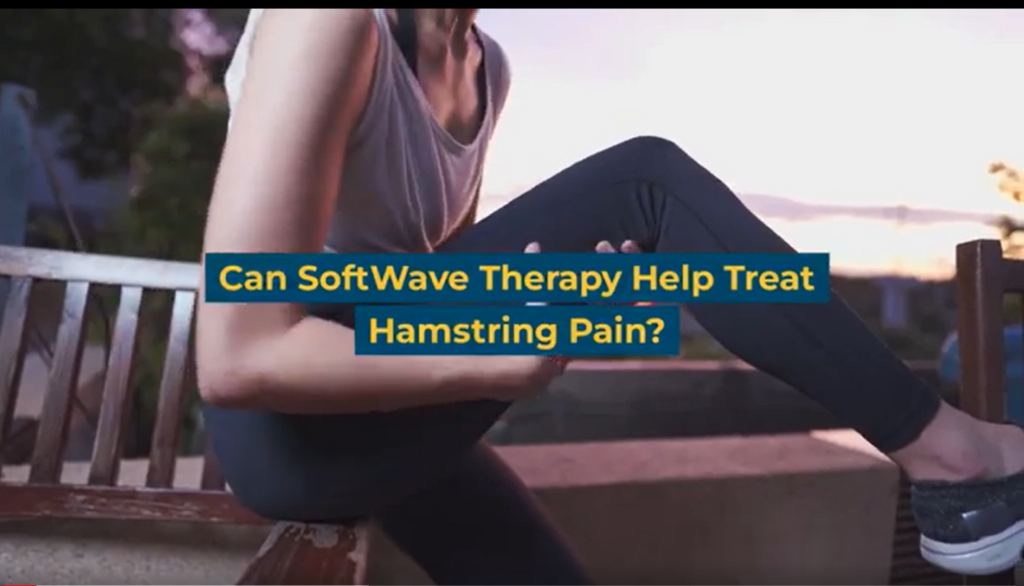Can SoftWave Therapy Treat Tarsal Tunnel Syndrome?
Home » FAQ » Can SoftWave Therapy Treat Tarsal Tunnel Syndrome?
Can SoftWave Therapy Treat Tarsal Tunnel Syndrome?
Tarsal Tunnel Syndrome is a condition that can cause significant pain and discomfort in the feet. While there are various traditional treatments available for this condition, SoftWave Therapy is an effective and non-invasive treatment option that brings relief and triggers nerve repair for neuropathic conditions like tarsal tunnel syndrome.
New Patient Special
Try SoftWave for just $69 at a clinic near you and learn if you’re a candidate for full treatment
What is Tarsal Tunnel Syndrome?
Tarsal tunnel syndrome is a condition that occurs when the tibial nerve, which runs down the back of the leg and behind the inside of the ankle, becomes compressed or squeezed as it passes through the tarsal tunnel. This can lead to pain, tingling, numbness, and weakness in the foot and ankle. Tarsal tunnel syndrome is similar to carpal tunnel syndrome, which affects the wrist and hand. The condition can be caused by various factors, including injury, overuse, underlying medical conditions, such as diabetes or arthritis, or the presence of a mass or cyst in the area.
Traditional Treatments for Tarsal Tunnel Syndrome
Traditional treatments for Tarsal Tunnel Syndrome include:
- Rest and ice: Resting the affected foot and applying ice to the area can help reduce swelling and relieve pain.
- Physical therapy: Exercises that stretch and strengthen the affected area can help reduce pressure on the nerve.
- Medications: Over-the-counter pain relievers, such as ibuprofen or acetaminophen, can help manage pain and inflammation.
- Steroid injections: Corticosteroid injections may be recommended to reduce inflammation and alleviate pain.
- Bracing or splinting: Wearing a brace or splint can help reduce pressure on the nerve and provide support to the affected area.
- Surgery: In severe cases where other treatments have failed, surgery may be recommended to relieve pressure on the nerve. This may involve cutting the ligament that is compressing the nerve or removing any masses that are compressing the nerve.
Although these treatments can provide relief for some, they may not work for everyone and may come with certain downsides. For instance, rest, icing, and elevation can alleviate symptoms temporarily, but do not target the root cause of the problem. Similarly, pain medication and anti-inflammatory drugs may not be effective for all patients and can result in side effects. Corticosteroid injections offer short-term relief but may not provide a lasting solution. Surgery, on the other hand, is a more invasive approach that carries risks and entails a long recovery period.
SoftWave Therapy for Tarsal Tunnel Syndrome: How Does it Work?
SoftWave Therapy is a non-invasive treatment that uses low-intensity acoustic waves to stimulate the body’s natural healing processes. The waves are delivered to the affected area via a handheld device that emits pulses of energy. These pulses penetrate the tissues and trigger a cascade of cellular responses that promote tissue regeneration and repair.
When used to treat tarsal tunnel syndrome, SoftWave Therapy targets the affected nerve, increasing blood flow to the area and promoting the production of growth factors and cytokines that aid in nerve regeneration.
Advantages of SoftWave Therapy Over Traditional Treatments
SoftWave Therapy is a painless and non-invasive option for treating tarsal tunnel syndrome that comes with several advantages over traditional treatments. Unlike surgery or injections, SoftWave Therapy doesn’t require any incisions or injections, which eliminates the risk of infection, scarring, or other complications. The procedure can be done quickly and easily in a doctor’s office or clinic without any downtime or recovery period.
Moreover, SoftWave Therapy is highly effective in treating chronic conditions like tarsal tunnel syndrome that have not responded well to conventional treatments. It focuses on the root cause of the issue instead of just treating the symptoms with medication. Additionally, SoftWave Therapy has demonstrated success in treating nerve damage, a prevalent symptom of tarsal tunnel syndrome.
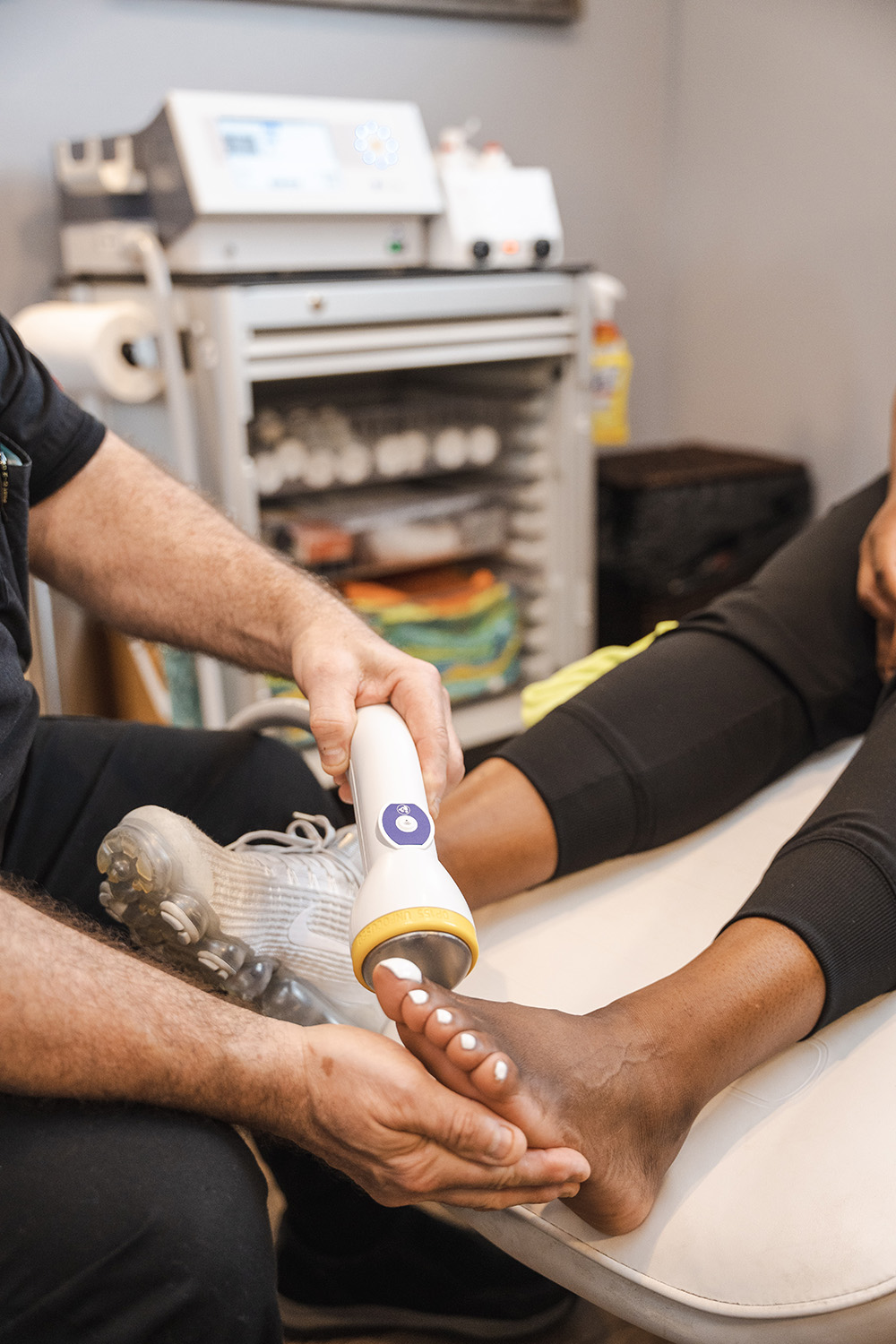
SoftWave Therapy is a non-invasive treatment that uses low-intensity acoustic waves to stimulate the body’s natural healing processes. The waves are delivered to the affected area via a handheld device that emits pulses of energy. These pulses penetrate the tissues and trigger a cascade of cellular responses that promote tissue regeneration and repair.
When used to treat tarsal tunnel syndrome, SoftWave Therapy targets the affected nerve, increasing blood flow to the area and promoting the production of growth factors and cytokines that aid in nerve regeneration.
Advantages of SoftWave Therapy Over Traditional Treatments
SoftWave Therapy is a painless and non-invasive option for treating tarsal tunnel syndrome that comes with several advantages over traditional treatments. Unlike surgery or injections, SoftWave Therapy doesn’t require any incisions or injections, which eliminates the risk of infection, scarring, or other complications. The procedure can be done quickly and easily in a doctor’s office or clinic without any downtime or recovery period.
Moreover, SoftWave Therapy is highly effective in treating chronic conditions like tarsal tunnel syndrome that have not responded well to conventional treatments. It focuses on the root cause of the issue instead of just treating the symptoms with medication. Additionally, SoftWave Therapy has demonstrated success in treating nerve damage, a prevalent symptom of tarsal tunnel syndrome.
Advantages of SoftWave Therapy Over Traditional Treatments
SoftWave Therapy is a painless and non-invasive option for treating tarsal tunnel syndrome that comes with several advantages over traditional treatments. Unlike surgery or injections, SoftWave Therapy doesn’t require any incisions or injections, which eliminates the risk of infection, scarring, or other complications. The procedure can be done quickly and easily in a doctor’s office or clinic without any downtime or recovery period.
Moreover, SoftWave Therapy is highly effective in treating chronic conditions like tarsal tunnel syndrome that have not responded well to conventional treatments. It focuses on the root cause of the issue instead of just treating the symptoms with medication. Additionally, SoftWave Therapy has demonstrated success in treating nerve damage, a prevalent symptom of tarsal tunnel syndrome.
Finding a SoftWave Therapy Provider for Tarsal Tunnel Syndrome
If you are looking for an effective tarsal tunnel syndrome treatment, SoftWave Therapy may be a breakthrough treatment option for you. To start your journey towards a pain-free foot, the first step is to find a qualified provider in your area. Check the nearest SoftWave provider on our website. Our providers are comprised of healthcare professionals who can create a personalized treatment plan just for you.
Try SoftWave today!
Disclaimer: The information provided in this blog is for educational and informational purposes only and is not intended as a substitute for professional medical advice, diagnosis, or treatment. The content provided in this blog should not be used to diagnose or treat any health problems or illnesses. Always consult with a qualified healthcare professional before making any changes to your healthcare routine or treatment plan.
